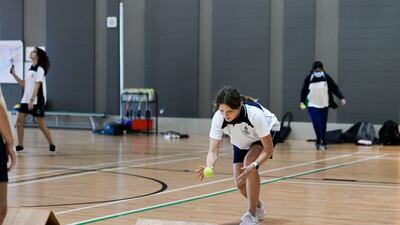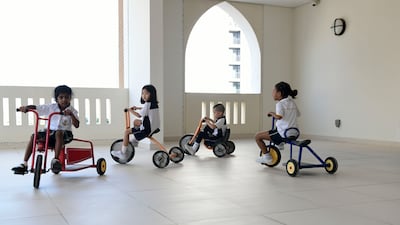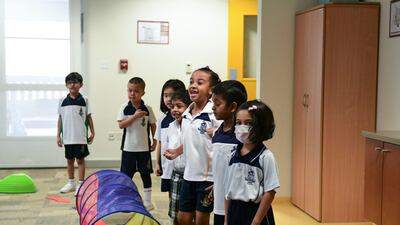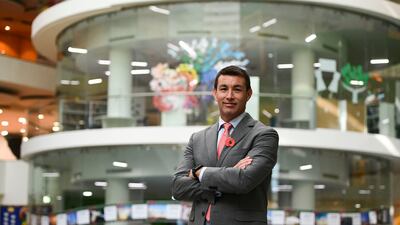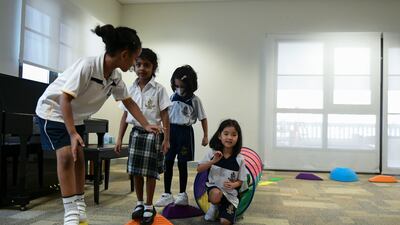From rock climbing to a game of gutter board, or the Swiss game of Tchoukball, pupils at an Abu Dhabi school are being introduced to a variety of non-traditional sports in a bid to reduce childhood obesity.
Repton Abu Dhabi found that during the pandemic, there was a 27 per cent decline in boys participating in physical activities, and girls' activity decreased by 45 per cent.
To counter this, the school has introduced its pupils to unconventional physical activities that are fun.
Principal Steve Lupton said that obesity, and particularly childhood obesity, was the epidemic left behind by the pandemic.
“Once we came back after school closures we definitely saw a bit of a gap in stamina and endurance,” said Mr Lupton.
“There was a bit of a gap in swimming endurance and it has taken time to build that up.”
The school tracked pupils’ fitness levels through a beep test.
“Pre-Covid our average score for 12 to 15-year-olds was 9.5 which is considered excellent. Immediately post-Covid, our average scores had dropped more than 2 levels, with an average score of 7.3,” he said.
“With sport and physical activity back in operation we are now seeing our pupils' fitness levels returning to pre-Covid levels.”
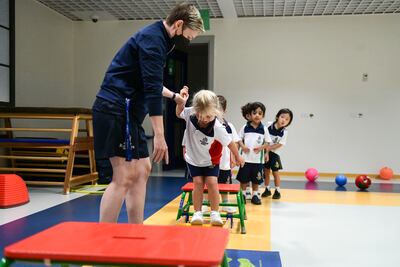
Some adolescent pupils at the school did not return to in-person classes for nearly a year and at different points, the school’s pool was closed for more than 12 months.
Mr Lupton said it was a challenge even before the pandemic to engage pupils who did not have a passion for sport and keep them physically active.
One answer to that was introducing unconventional sports.
“It's about physical activity in disguise. It is getting children to stay active and getting their heart rates up and moving, but finding enjoyment,” he said.
The school timetabled PE and swimming lessons for all pupils, appointed a full-time swimming coach, and organised running, cycling events and cross-country championships.
It has built a rock-climbing wall in its junior campus and follows the Abu Dhabi Department of Education and Knowledge's policy to screen pupils and record their body mass index.
Programme to encourage healthy eating
“We have a whole package of increased opportunities for physical activity, but we are also focusing on education around what we're eating and how we're trying to maintain that sustainably,” Mr Lupton said.
He said that when he walked around the school at lunchtimes he could see very unhealthy food in lunch boxes at times.
“I don't want to be critical of parents, because I know as a parent how hard it is sometimes, but it's obvious that there needs to be a shift in some sections towards healthier and sustainable eating patterns.”
The school plans to launch a paediatric nutrition programme in February targeted at pupils aged 3 to 18, parents and teachers.
Lauren Hughes, wellness co-ordinator at the school, said the six-week programme would teach families about macronutrients and work to retrain the palates of children so that they could learn to enjoy fruits and natural food, rather than fast food.
It would also work to educate families about reading nutrition labels, balanced lunch boxes and the minerals and vitamins children need.
“Our mission is not to make everyone cut out all of their favourite food. It's very much an abundance approach rather than one of deprivation,” said Ms Hughes.
“It's teaching children how to look after themselves and having conversations on what brings us joy about food.
“What has often happened in the past is that you can teach children as much as you like and think that you're empowering them. And then they go home and their parents take them to McDonald's. So it really has to be a whole family approach.”
